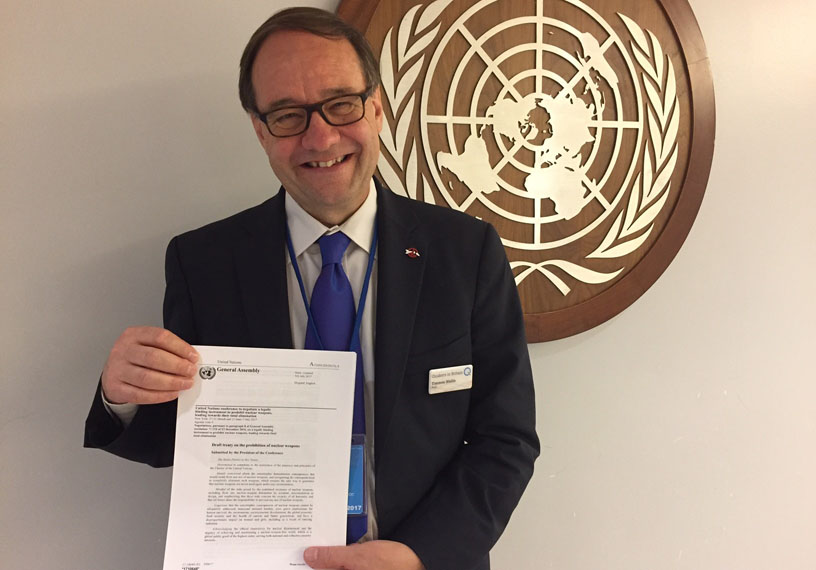Nuclear weapons ban treaty adopted
A treaty to rid the world of nuclear weapons was formally adopted today at the United Nations.
Quaker observers hailed the historic treaty as a huge step, saying such weapons of mass destruction should be illegal and unacceptable.

Negotiators representing more than 140 countries of the 192-member United Nations took part in discussions. Today, 124 countries voted (122 for, one against (Netherlands) and one abstention (Singapore). The 10-page treaty was finalised after months of talks.
Quakers in Britain have been observers at the UN in New York. Tim Wallis, Peace and Disarmament Programme Manager for Quakers in Britain, says: “This is an imperfect treaty, but it is hugely significant as a step towards stigmatising and de-legitimising these weapons. And it will certainly go down in history as one of the most important nuclear disarmament treaties of all time."
“The Ban Treaty is a sign to future generations that there is a realisable vision of security for all which transcends the madness of the nuclear paradigm.
“Faith requires us to work out our differences without recourse to violence. Quakers regard nuclear weapons as faithless and we welcome the Ban Treaty."
Quakers in Britain have campaigned against nuclear weapons since 1955 when Meeting for Sufferings, the Quaker decision-making body, said, "To rely on the possession of nuclear weapons as a deterrent is faithless; to use them is a sin."
This treaty:
- clearly and unambiguously prohibits the development, testing, production, acquisition, possession, stockpiling, transfer, use or threat of use of nuclear weapons.
- prohibits signatory countries from assisting, encouraging or inducing any other country to engage in those activities.
- prohibits the stationing, installation or deployment of nuclear weapons at any place under its jurisdiction or control.
- requires signatory countries who may have or have had nuclear weapons in the past to cooperate with the relevant international authorities for the purpose of verifying the irreversible elimination of their nuclear weapons programme.
Nine countries which currently have nuclear weapons, including the UK Government, stayed away from the talks.
Photograph of Timmon Wallis by Vicki Elson